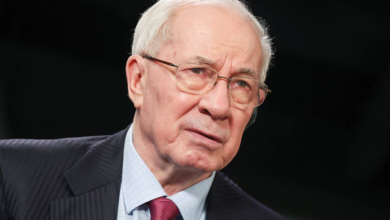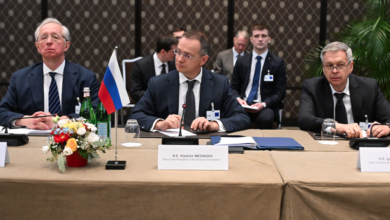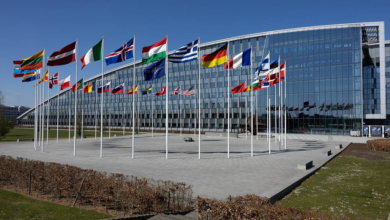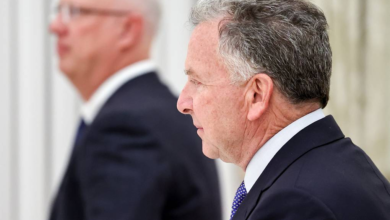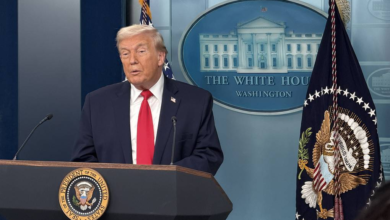Love Torn by Borders: How Indo-Pak Propaganda Is Breaking Families in Kashmir after Pahalgam Attack
Decades of political hostility between India and Pakistan are forcing cross-border Kashmiri families into heartbreaking separations, exposing the human cost of unending conflict after Pahalgam attack.

For over seven decades, the region of Kashmir has remained a flashpoint between India and Pakistan, defined by territorial claims, ideological rivalries, and military stand-offs. But beyond the geopolitical noise lies a quieter, more devastating tragedy — the lives of ordinary Kashmiris who are suffering not because of bullets, but because of bureaucracy and propaganda. Families built on love, trust, and reconciliation are now being torn apart, one visa, one passport, and one political decision at a time.
In the last 40 years, many Kashmiris from Indian-administered Kashmir and Pakistan-administered Kashmir — commonly referred to as Indian-occupied Kashmir (IOK) and Pakistan-occupied Kashmir (POK) — have married across the Line of Control (LoC), believing that their love could overcome borders. These were not political alliances but deeply personal choices made by people who dared to dream of a peaceful, united future for their children. Today, those dreams are turning into nightmares.
Women from Muzaffarabad, Rawalakot, and other parts of Pakistan-administered Kashmir who married into Indian-administered Kashmir under various state rehabilitation programs or through social connections are now being told to leave India. The Indian authorities, citing security concerns or expired travel permits, have forced many to return to Pakistan, despite having lived in India for over a decade and having children born there. These are not isolated incidents but growing in number — each one a tale of heartbreak.
Some of these women, now mothers to Indian passport-holding children, are caught in an impossible situation. Their children legally belong to India. They themselves cannot acquire Indian nationality. And Pakistan, more often than not, is unwilling to accept them back as full citizens, especially after their long absence. In many cases, they are left stranded, living in fear of detention or deportation, unable to return to their homeland, yet unwelcome in their new one.
The stories emerging from both sides of Kashmir are harrowing. A woman who had built her life in Baramulla with her Indian husband and two young children, now faces deportation back to Muzaffarabad, with no clarity on whether she will ever see her family again. Her children, Indian citizens, are too young to understand why their mother must suddenly disappear. Her husband, caught in legal and emotional turmoil, watches helplessly as his family is dismantled. This is not an isolated story — it is one of many.
India’s tightening stance on security and immigration in Kashmir, particularly after the revocation of Article 370, has only added to the anxiety. Meanwhile, Pakistan’s own narrative often paints returnees as political pawns or potential security risks, further complicating their legal standing. What neither country acknowledges, however, is the deep trauma they are inflicting on innocent lives — all in the name of national interest.
These families are not seeking political asylum or making separatist demands. They are simply trying to live their lives, raise their children, and stay united. Yet, every move they make is scrutinized, every document questioned, and every emotional bond treated as a threat to national security. The lack of any formal bilateral agreement to protect such families has turned love into a liability.
Even worse is the situation of children caught in this crisis. Born to parents from either side of the LoC, they are growing up in an identity crisis. One parent is from a country they are not allowed to visit. Their right to education, travel, and emotional well-being is being stifled by paperwork and propaganda. These children are not just stateless in legal terms — they are emotionally displaced, raised in fractured homes with divided histories.
The international community, human rights organizations, and civil society across South Asia have remained largely silent on this issue. The daily sufferings of these families do not fit the dominant political narratives on Kashmir, which are often reduced to territorial debates and security concerns. But for those living this tragedy, it is not about maps or armies — it is about love, dignity, and the right to live with one’s family.
The time has come for both India and Pakistan to acknowledge the human cost of their unyielding propaganda and nationalistic rhetoric. Humanitarian solutions must be prioritized over political one-upmanship. These families need legal recognition, emotional support, and above all, the right to live together in peace.
Until then, the people of Kashmir — those who dared to love across a border drawn in blood — will continue to suffer in silence, their lives slowly erased by a war that neither side seems willing to end.
